
Lisa Grossman is the astronomy writer for Science News. Previously she was a news editor at New Scientist, where she ran the physical sciences section of the magazine for three years. Before that, she spent three years at New Scientist as a reporter, covering space, physics and astronomy. She has a degree in astronomy from Cornell University and a graduate certificate in science writing from UC Santa Cruz. Lisa was a finalist for the AGU David Perlman Award for Excellence in Science Journalism, and received the Institute of Physics/Science and Technology Facilities Council physics writing award and the AAS Solar Physics Division Popular Writing Award. She interned at Science News in 2009-2010.

Trustworthy journalism comes at a price.
Scientists and journalists share a core belief in questioning, observing and verifying to reach the truth. Science News reports on crucial research and discovery across science disciplines. We need your financial support to make it happen – every contribution makes a difference.
All Stories by Lisa Grossman
-
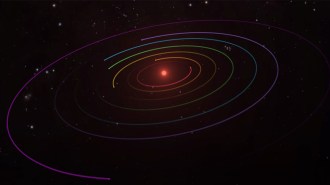 Space
SpacePlanets with many neighbors may be the best places to look for life
Solar systems with many planets in circular orbits suggest a calm life-nurturing past, while single exoplanets with eccentric orbits hint at chaos.
-
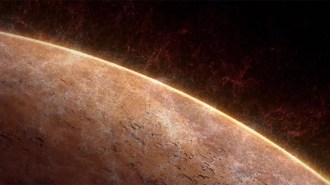 Planetary Science
Planetary ScienceChemical reactions high in Mars’ atmosphere rip apart water molecules
Mars is so dry because its water constant escapes into space. A new study suggests this process occurs in the ionosphere and faster than thought.
-
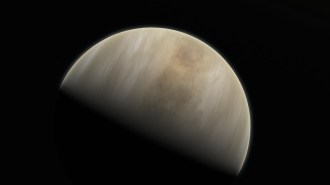 Planetary Science
Planetary ScienceDoubts over a ‘possible sign of life’ on Venus show how science works
Detecting phosphine in Venus’ atmosphere made headlines, but reanalyses and new searches call into question the original discovery of the molecule.
-
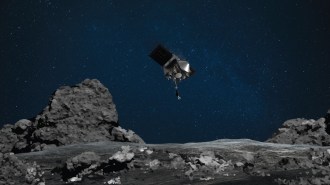 Space
SpaceNASA’s OSIRIS-REx survived its risky mission to grab a piece of an asteroid
NASA’s OSIRIS-REx spacecraft just tried to grab a piece of asteroid Bennu. If successful, the spacecraft will return the sample to Earth in 2023.
-
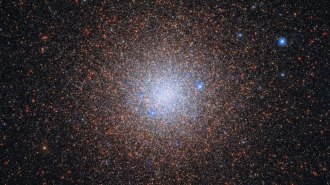 Space
SpaceA spherical star cluster has surprisingly few heavy elements
A globular cluster in the nearby Andromeda galaxy challenges conventional wisdom about how galaxies form.
-
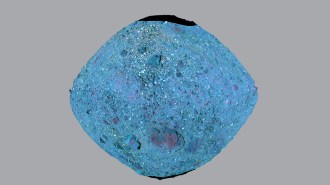 Space
SpaceThe asteroid Bennu’s brittle boulders may make grabbing a sample easier
NASA’s OSIRIS-REx spacecraft is about to collect a bit of asteroid Bennu. Here’s why it’s good that new research suggests its boulders are brittle.
-
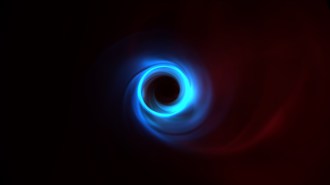 Space
SpaceThe first black hole image helped test general relativity in a new way
The Event Horizon Telescope’s iconic image of the black hole at the center of galaxy M87 once again shows Einstein was right.
-
 Health & Medicine
Health & Medicine50 years ago, an experimental drug hinted at serotonin’s many roles in the brain
Excerpt from the October 3, 1970 issue of Science News
-
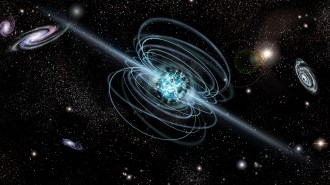 Space
SpaceNeutrinos could reveal how fast radio bursts are launched
Highly magnetized stellar corpses called magnetars may be the source of two different cosmic enigmas: fast radio bursts and high-energy neutrinos.
-
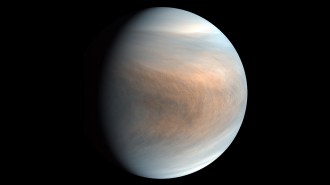 Space
SpacePhosphine gas found in Venus’ atmosphere may be ‘a possible sign of life’
Astronomers have detected a stinky, toxic gas in Venus’ clouds that could be a sign of life, or some strange unknown chemistry.
-
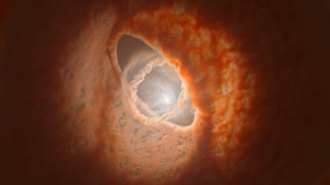 Space
SpaceA weirdly warped planet-forming disk circles a distant trio of stars
The bizarre geometry of a disk of gas and dust around three stars in the constellation Orion could be formed by “disk tearing” or a newborn planet.
-
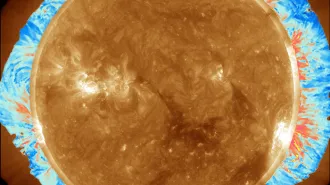 Astronomy
AstronomyCheck out the first-ever map of the solar corona’s magnetic field
Solar physicists watched waves in the sun’s corona to map the whole corona’s magnetic field. Future observers could use the same technique to predict solar eruptions.